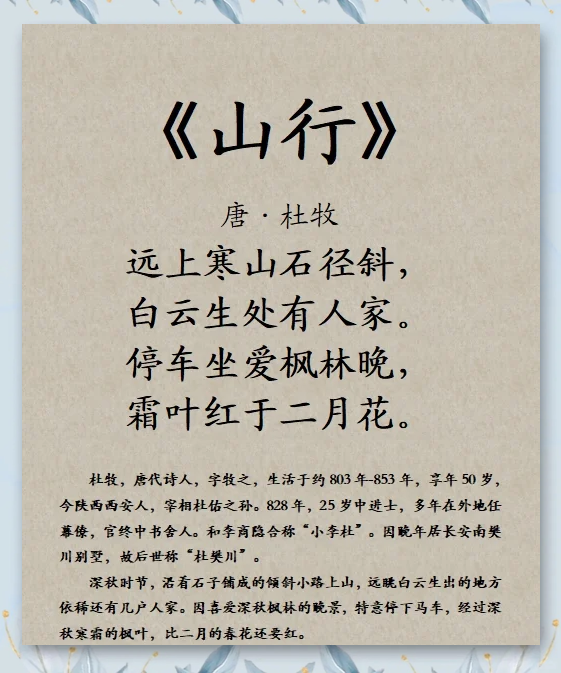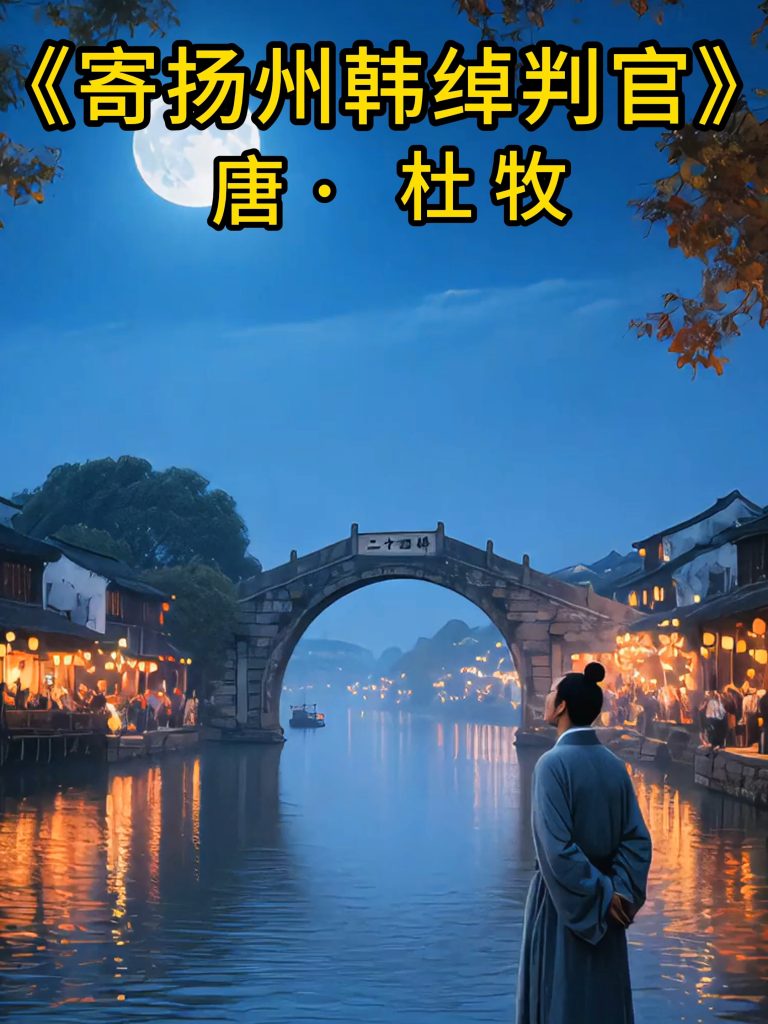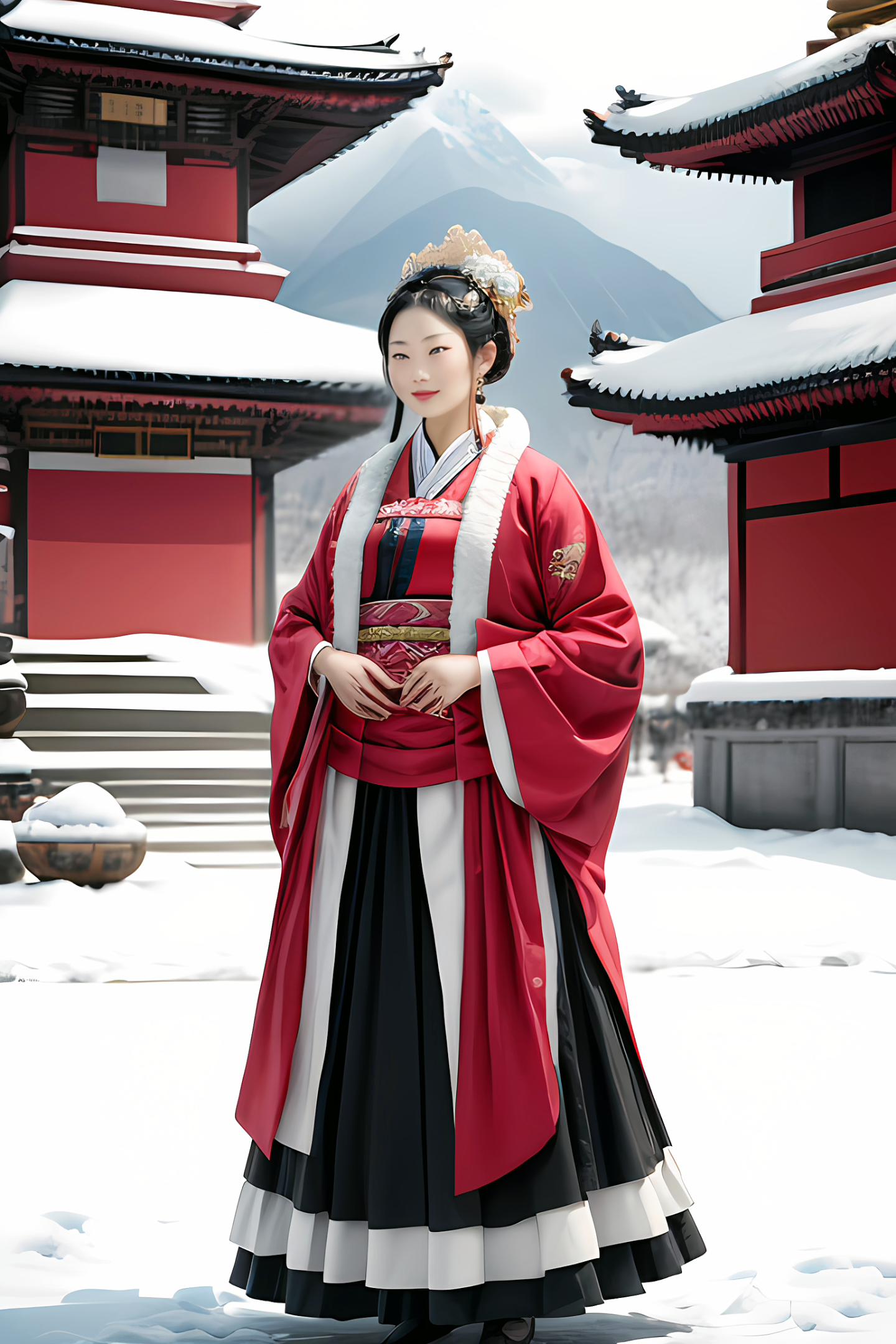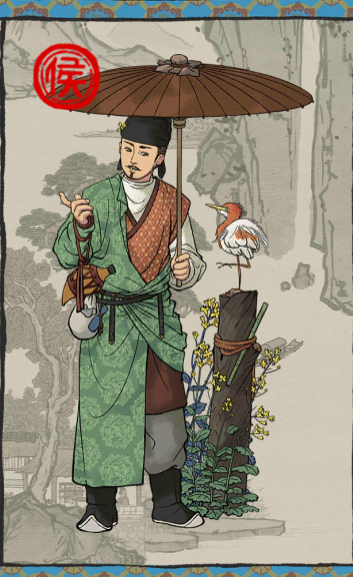One important reason why Wu Zetian’s ascent to power was so smooth was that Emperor Gaozong of Tang, Li Zhi, had almost reached the point of obeying her every word. Before and after Empress Wu Zetian ascended the throne, she brutally harmed Li Tang’s relatives and high-ranking officials. However, as the emperor, Li Zhi simply stood by and did not stop Wu Zetian’s actions. Changsun Wuji, as the chief contributor of Lingyan Pavilion, was framed by Wu Zetian in his later years and was eventually demoted to death. Many people do not understand why Li Zhi indulged Wu Zetian so much that Wu Zetian could monopolize power and lay hidden dangers for the Li Tang crisis.

Wu Zetian was a legendary woman, but before she became emperor, there were also many stories, one of which was Wu Zetian’s revenge. Therefore, after Wu Zetian became the empress, she gradually gained access to great power with the help of Li Zhi’s favor, and began her own path of revenge.
When Empress Wu Zetian sought revenge on her ministers and her own family members, as the emperor of the Tang Dynasty, Li Zhi always chose to watch coldly. Why is this?
Since Wu Zetian was taken into the palace by Empress Wang of Li Zhi, a conflict among women in the harem escalated. As Wu Zetian gradually gained favor, Xiao Shufei, who was originally favored by Li Zhi, was defeated. Empress Wang brought Wu Zetian to the palace to deal with Xiao Shufei. She thought that Xiao Shufei had fallen and her own good days had arrived.

Empress Wang’s plan was good, but she underestimated Wu Zetian. Wu Zetian, who had experienced the reign of Li Shimin and spent a year in the temple, was no longer a newcomer. Therefore, Wu Zetian initially used Empress Wang to eliminate Empress Xiao Shufei. Since Empress Xiao Shufei fell, the next one to fall would be Empress Wang.
The struggle between Empress Wu Zetian and Queen Wang was actually a struggle between some ministers, such as Changsun Wuji and Chu Suiliang, who were also important ministers left by Li Shimin to assist Li Zhi in continuing the prosperous era of Zhenguan.
In the struggle with Empress Wang, Li Zhi sided with Empress Wu Zetian because she had never had any children. Therefore, Li Zhi wanted to make Empress Wu Zetian his successor. To this end, Li Zhi even took Empress Wu Zetian to visit the home of Changsun Wuji. Although Changsun Wuji was Li Zhi’s uncle, Li Zhi went as an emperor, which was a very honorable thing for the ministers.
But in Changsun Wuji’s place, Li Zhi was turned away. Whenever Li Zhi wanted to bring up the topic of establishing Empress Wu Zetian as the successor, Changsun Wuji would steer the topic astray, and in the end, Li Zhi and Empress Wu Zetian returned without success.
Li Zhi did not receive the support of his uncle Changsun Wuji, nor did he receive the support of Zhusuiliang. However, Li Zhi received the support of another orphan minister, Li Ji. When Li Zhi asked Li Ji how he could make Wu Zetian the empress, he casually said, “This is Your Majesty’s family matter, why bother with them
It was this sentence that caused Li Zhi to silence the ministers, but Li Ji’s behavior was obviously very irresponsible. Although the emperor’s family affairs are family affairs, sometimes they are national affairs.
Also, because of Li Ji’s words, he left a “smooth and worldly” image, but his loyalty to the Tang Dynasty was unparalleled, and his actions may also have seen Li Zhi’s determination.
After many twists and turns, Wu Zetian still became the empress, and those who opposed her becoming empress at that time were all on her blacklist. She was a person with a strong desire for revenge. Firstly, she imprisoned her defeated subordinates, Queen Wang and Empress Xiao Shufei, and ultimately tortured them to death.
After Li Zhi made Wu Zetian the empress, his reign title was also changed from “Yonghui” to “Xianqing”. Then Wu Zetian’s reckoning began, starting with Chu Suiliang, who had already been demoted. Then, Wu Zetian’s confidants such as Xu Jingzong accused Chu Suiliang of plotting rebellion in another city.
In ancient times, whenever there was a charge of rebellion, life was basically over. However, looking at many major cases of rebellion in ancient times, the word “intention” was almost always added at the beginning. Chu Suiliang was wrongly accused, but he accepted his fate and knew who was punishing him.
Chu Suiliang was greatly troubled by Wu Zetian. When he was demoted to one place, he was soon to be demoted to another place. In short, he was not allowed to calm down. At that time, he was already very old and eventually died of illness in Southeast Asia.
After Chu Suiliang and others were dealt with by Wu Zetian, it was Changsun Wuji’s turn. Changsun Wuji was a smart person who voluntarily withdrew from the core layer when Li Zhi changed his reign title. He thought this would protect himself, but he underestimated Wu Zetian too much.
Wu Zetian instructed Xu Jingzong to falsely accuse Changsun Wuji of plotting rebellion. In the end, Li Zhi cried and said, ‘Our family is unlucky. Why did so many people betray me?’. However, Li Zhi only demoted Changsun Wuji and did not do anything to him. In the end, Changsun Wuji was persecuted to death by Wu Zetian.
After finishing cleaning up the ministers such as Changsun Wuji, Wu Zetian turned to her four older brothers, two half brothers and two cousins. These four people used to bully their mother and daughter frequently, but under the manipulation of Wu Zetian, they went underground to reunite.
Wu Zetian’s removal of Changsun Wuji should have made Li Zhi sad, but he did not stop him and chose to watch coldly. The reason was also due to the word “power”. Looking back at Changsun Wuji in the early stage of Li Zhi’s rule, what he really said was what he meant. Sometimes Li Zhi needed to listen to him. Later, Changsun Wuji was removed, and Li Zhi not only felt sad, but also had the freedom to let go and finally no longer be watched by others.
Wu Zetian got rid of her mother’s family, and it would have been good if Li Zhi didn’t help. She chose to stand by her side and didn’t want to be criticized by her ministers. Besides, at that time, she was more concerned about the relationship between the princes.



